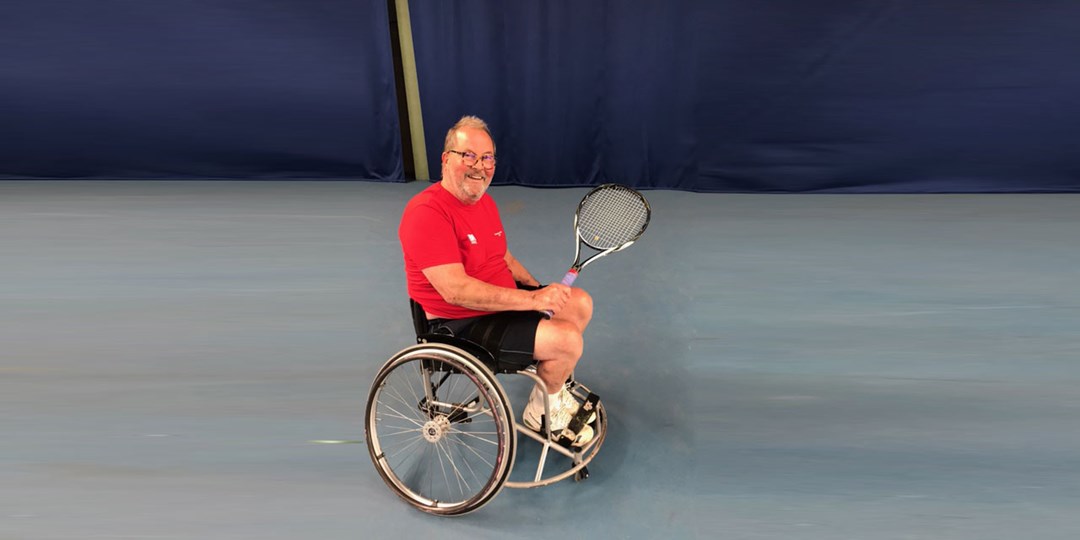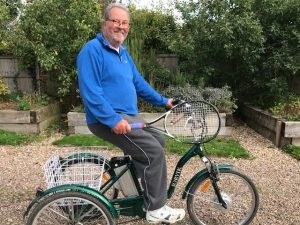
Stephen’s Story: How TV coverage of Wimbledon inspired one man to return to the court after a terminal diagnosis
• 3 MINUTE READ
Stephen Dargavel has always been a keen tennis player. From picking up a racket at school for the first time to representing his local village club for almost a decade, it is a sport he has loved playing.
But when he was diagnosed with a brain tumour in late 2016, his racket was put to one side and wasn’t touched again for nearly two years – until he watched coverage of this year’s Wimbledon.
Sitting down to watch the men’s wheelchair doubles final on the penultimate day of The Championships, Stephen, from Lincolnshire, was awestruck and inspired in equal measure.
The BBC commentary team for the match was Nick Mullins and Peter Norfolk. During their commentary of British duo Gordon Reid and Alfie Hewett’s epic win, they mentioned a free ‘come and try’ taster session was being held by the Tennis Foundation at the British Open in Nottingham the following week where anyone could go and have a go at wheelchair tennis.
It was a chance to return to the sport that Stephen just couldn’t let pass him by, so seven days on from watching the match he found himself sat in a wheelchair on the courts of Nottingham Tennis Centre.
“Hitting the tennis ball was easy enough of course, but manoeuvring a wheelchair is devilishly difficult if you’ve never done it before,” he explained.
“I was completely riveted by what I saw on television in the men’s doubles final at Wimbledon. It was a combination of enormous skill and pace, moving the chairs about while playing a very high level of tennis.
Playing in a wheelchair is the only option I have now, and I realised there was no reason why I couldn’t do it. I hadn't hit a tennis ball since I was diagnosed in 2016, and now I am having the chance to do that again.
The diagnosis had a monumental effect on Stephen’s life – having been told it was a terminal condition, he knew it was going to bring a premature end to his life.
And yet he is surprisingly upbeat about the challenge of getting used to using a wheelchair – he doesn’t need one to get around in his day-to-day life, but the high-speed nature of the sport means it’s a requirement on court.

I’ve been given a life expectation, and that’s quite short, but in the meantime, I intend to get the best out of my life in every way possible, one of which is through tennis.
“Partly through a loss of balance and partly through medication I can’t run or turn quickly, so I need a wheelchair to manoeuvre myself around the court," Stephen said.
“At the come and try sessions we were put into small groups, each with a designated coach, and we were shown how to move the chairs up and down the court, backwards and for-wards, how to turn.
“It was a really useful session. It only lasted about an hour and a half but it was a terrific introduction which inspired me to get in contact with Nottingham Tennis Centre, where I booked my first one-to-one lesson.”
Stephen is now a regular at Nottingham Tennis Centre, where he has a one-to-one lesson each week.





